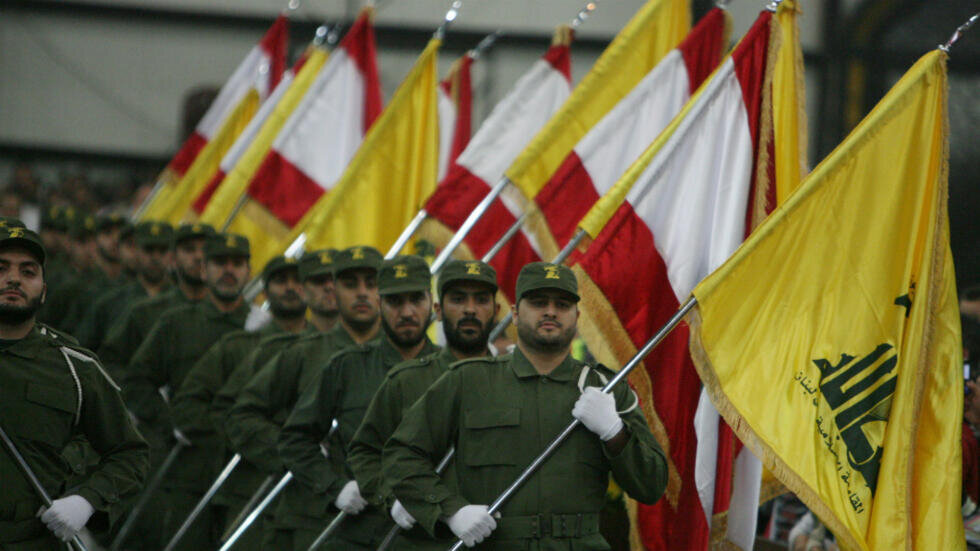America’s West Asia nightmare
Why direct war between Hezbollah and Israel spells disaster for Washington

TEHRAN- The United States is gripped by fear of a potential full-scale conflict between Israel and Lebanon’s Hezbollah.
American officials are deeply concerned that how Washington will be able to defend Israel if the regime of Prime Minister Benjamin Netanyahu and the Lebanese resistance movement go to direct war.
Israel and Hezbollah have been exchanging fire since the regime declared war on Gaza on October 7. Hezbollah has stressed that it won’t stop its attacks unless Israel ends the genocidal war on Gaza.
Nonetheless, fears over a full-blown war grew after Netanyahu issued a threat against Lebanon earlier this month. The Israeli premier said Tel Aviv is preparing for “a very tense operation” on the border with Lebanon.
Since then, Israeli officials have intensified rhetoric against Hezbollah.
The US, Israel’s main ally, fears that the direct war between Israel and Hezbollah will lead to a wider regional conflict.
US media say White House officials are making diplomatic efforts to avert such a war.
US nightmare
The New York Times has explained the motive behind such efforts.
“The nightmare scenario for U.S. officials would be an escalation in which, for a second time, Iran and Israel directly exchange blows. In another such round, the United States might not be able to control the escalatory tit-for-tat as it did in April,” the American daily newspaper based in New York City said on Friday.
The report said American officials are haunted by fears that Israel’s war on Hezbollah could pit the US and Iran against each other.
The United States considers itself a global superpower and Israel claims to be the biggest military power in West Asia. So, why is the US concerned about Iran’s possible military intervention if a regional war breaks out?
A glance at Iran’s military operation against Israel that was carried out more than two months ago can shed light on such fears.
In mid-April, Iran launched a salvo of more than 300 drones and missiles at Israel. The Islamic Revolution Guard Corps (IRGC) dubbed the operation “True Promise”.
It came after several Iranian military advisors including a top commander were assassinated after an Israeli strike demolished Iran’s consulate in the Syrian capital, Damascus, on April 1st.
Following Iran’s retaliatory strike, multiple American officials said the Israelis had badly miscalculated, thinking that Tehran would not react strongly, the New York Times reported at that time.
Former veteran American diplomat Chas Freeman, who served as the U.S. ambassador to Saudi Arabia (1989–92), also said in April that Iran’s attacks showed Israel could not defend itself without the support of the US and its allies.
“Iran succeeded in panicking the Israeli population….it can overwhelm Israel’s defenses if it chooses to do so and Israel cannot defend itself without the active participation of the United States, the UK, France and in this case Jordan,” he noted following Operation True Promise.
Former Israeli air defense commander Brigadier General Zvika Haimovich also acknowledged in April that Iran is a “superpower in tactical ballistic missiles and UAVs.”
Similar comments were made by former US Central Command chief Kenneth McKenzie in an April 2021 testimony before the Senate Armed Services Committee, saying the US is “operating without complete air superiority” for the first time since the Korean War because of Iran’s drone capabilities.
Hence, the US is worried about a large-scale confrontation in West Asia because of Iran’s growing military capabilities.
Hezbollah capabilities
Likewise, the military might of Hezbollah is a matter of concern for the US and Israel.
Citing the World Factbook of the U.S. Central Intelligence Agency, Reuters reported earlier this month that Hezbollah's military strength is underpinned by upwards of 150,000 missiles and rockets of various types and ranges.
Hezbollah Secretary General Seyyed Hassan Nasrallah has also said that the number of fighters who are ready to join a possible war against Israel has exceeded 100,000.
According to Politico, a full-on war between Israel and Hezbollah could break out in the next several weeks if the Netanyahu regime fails to reach a ceasefire deal with Hamas.
Presently, Israel can initiate a war with Hezbollah but it won’t be able to end it.
The Israeli minister of religious affairs warned over a week ago that the Israeli death toll could significantly increase in the event of a full-scale war with Hezbollah.
Michael Malchieli said Israel is bracing for the possibility of "mass burials" if the regime goes to war with the Lebanese resistance group.
Malchieli touched upon the possibility of "mass burials" for Israeli soldiers. The US should also brace itself for such a gloomy fate if it makes miscalculations.
Leave a Comment